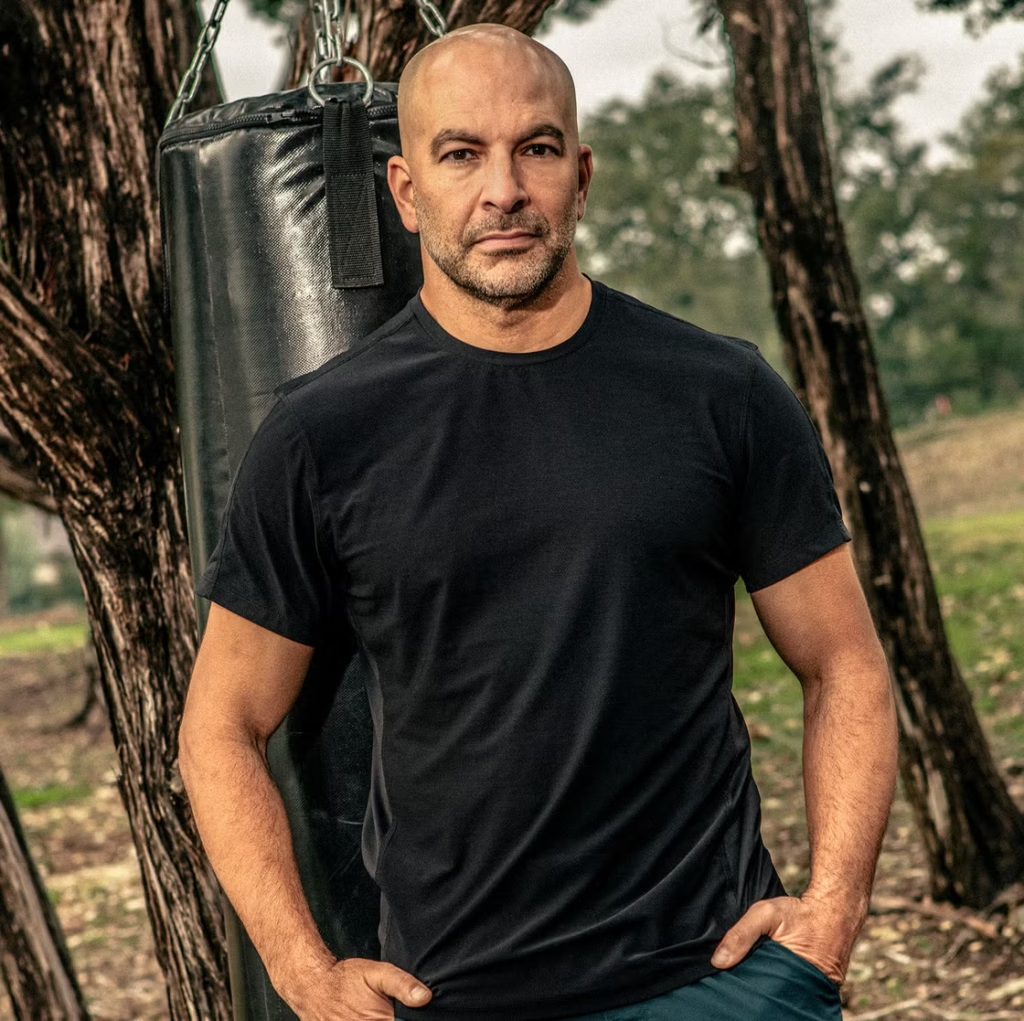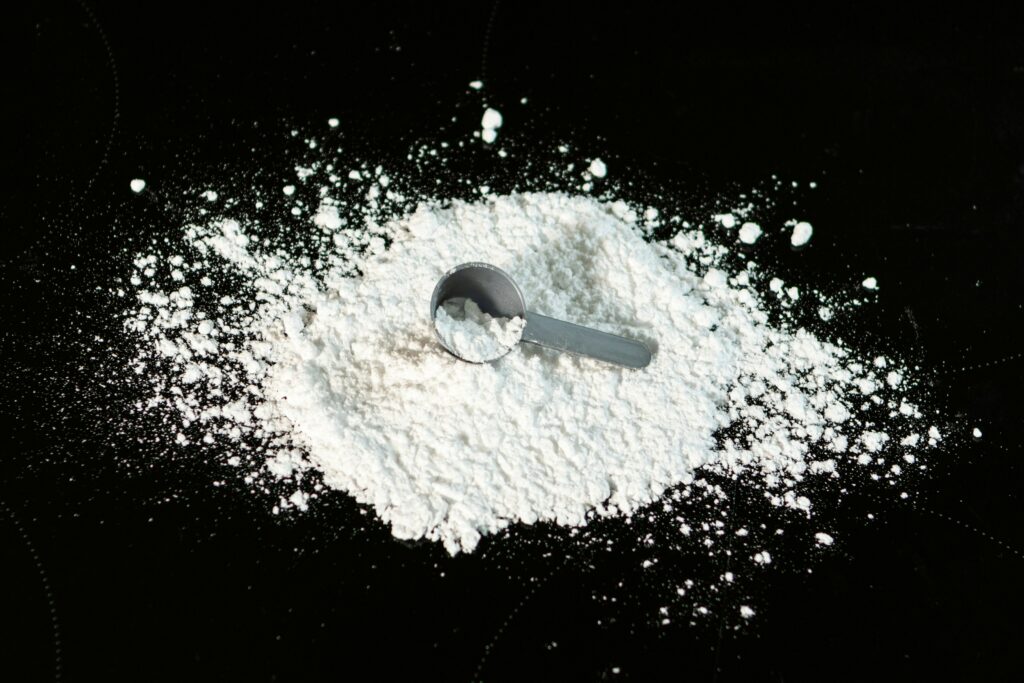SKY-HIGH TESTOSTERONE seems to be everyone’s answer for what ails all men, promising more energy, bigger muscles, higher sex drive, better mood and PBs in the gym. At least that’s the picture promoted by supplement spruikers, online ‘men’s health’ clinics and plenty of content creators.
We don’t want you to be duped out of your hard-earned, or into taking a DIY approach to something best left to professionals. So, before you turn to so-called testosterone-boosting supplements, here’s what you need to know about testosterone, how to know if you really do have low levels, and why higher isn’t necessarily better.
What is testosterone and how does it work?
Testosterone is a hormone required for development and function of the body, and is responsible for regulating sperm production, bone health, muscle mass and sex drive. It is produced mainly by the testes in men, but it is also produced in smaller amounts by the adrenal glands and a few other tissues in the body (including the ovaries in females).
Testosterone has profound effects on the body. Just look at the changes that occur during puberty in boys, when testosterone levels increase by a factor of 20. The extreme effects can be seen in the physiques of pro wrestlers in the ’90s (and the long list of wrestlers who died early from complications of testosterone abuse, like the Ultimate Warrior and Eddie Guerro); or the developmental problems, infertility and other health effects caused by testosterone deficiency, like for the one in 500 males who have Klinefelter syndrome.
The effects of too much or too little testosterone show why our bodies need to regulate our testosterone levels within a healthy range.

The Ultimate Warrior I WWE
How does the body regulate its testosterone level?
The body keeps testosterone at the right level for proper function using a negative feedback system to ensure levels don’t get too high or too low. Here’s how it works: a part of the brain called the hypothalamus monitors the body’s testosterone level. When levels are low, it signals the testes to make more. When levels are high, it tells the testes to make less.
In addition to testosterone, the hypothalamus is responsible for regulating lots of biological processes (such as digestion, metabolism, immune function, sleep and reproduction) and it integrates information from many of the body’s systems to optimise function.
What is a normal level of testosterone for men?
The normal range for levels of testosterone in the blood (in the morning, fasted) for young healthy males is around 10 to 30 nmol/l (approx. 290-865 ng/dl) and in healthy older men is around 6.5 to 26 nmol/l (187-750 ng/dl). Any level within these ranges is considered normal. Higher doesn’t necessarily indicate healthier. You can think of it like height, where anywhere between 163 cm and 194 cm is normal.
Does ‘male menopause ’exist?
The large overlap in ‘normal’ testosterone levels between younger and older healthy men shows that there isn’t a large decline with age. ‘Male menopause’ is a myth and it persists because its appeal can be exploited to sell people things they don’t need.
Some males do have low testosterone levels, but in many cases, it’s due to lifestyle-related disease, such as overweight or obesity, insulin resistance or diabetes, or cardiovascular disease. In these cases, testosterone treatment isn’t much more helpful than getting back to good health through diet and exercise.
Perhaps the myth of male menopause persists because the symptoms of low testosterone are so common. Who doesn’t have times when they lack energy, have poor concentration or trouble sleeping, are less interested in sex, or don’t feel as strong as they used to? But a low testosterone level isn’t the only thing that explains these symptoms. That’s why a precise diagnosis of hypogonadism (when your testes don’t produce enough testosterone) is needed before beginning testosterone treatment. Testosterone treatment is not appropriate for most of the possible causes of symptoms shared by low testosterone and other health problems, which include cancer or depression.
Diagnosis of hypogonadism requires at least two measurements of blood levels of testosterone and other hormones, taken in the morning, while fasting, and collected on separate days. To receive a government subsidy for the cost of testosterone treatment, serum testosterone levels must be below 6 nmol/l, or between 6-15 nmol/l in combination with other specific hormonal abnormalities.
Weighing up the ways to increase testosterone
If your body fails to make enough testosterone to function normally, you’ll need testosterone replacement therapy (TRT). We know the benefits of the treatment are substantial and outweigh the risks in these cases. TRT is provided by specialist clinicians, with careful monitoring to avoid the negative impacts testosterone treatment can cause. A fairly common consequence of TRT is polycythaemia, which increases the risk of blood clots, heart attack, stroke or death. While a large, recent clinical trial provided reassuring findings about some of the health risks of TRT, “[i]t does seem, however, that every positive testosterone study always comes with caveats”.
There are lots of caveats.
It’s important to note that most of the evidence about the effects of using testosterone comes from studies of older men, many with existing health concerns. The results from these studies can’t be applied to younger men because testosterone’s effects are age dependent. For example, testosterone can help maintain bone density in older males, but it limits height by stimulating the closure of growth plates in long bones in younger males. And side effects like infertility are less consequential for older men than they are for younger males.
Most clinical trials of testosterone treatment only last a couple of years, so long-term effects on cardiovascular health, and other systems, aren’t captured. Using testosterone to try and counter the effects of ageing is a long-term commitment. The withdrawal effects of stopping testosterone treatment often lead to starting again. That’s a consequence of that negative feedback system. Using testosterone shuts down the body’s production of the hormone and it takes months to recover.
Testosterone use for building muscle or enhancing performance often involves long-term use at high doses, so it’s reasonable to expect that outcomes will be different than after well-regulated use in a two-year clinical trial. Add to that ‘stacking’ (use of other substances in addition to testosterone), the unpredictable risks of using testosterone (and other substances) acquired from illicit sources, and risks from unsafe injecting, and there are a lot of unknowns contributing to what the overall effects will be. But we know steroid abuse is linked to cardiovascular disease, liver and brain damage, rhabdomyolysis and embolism with side effects also including gynaecomastia, acne and infertility.
What are the evidence-based ways to maintain a healthy testosterone level?
People who want to sell you things will tell you that you can ‘naturally’ boost your testosterone levels but evidence to support their use, in most cases, just doesn’t exist.
Remember, the hypothalamus takes in information from a whole range of systems when regulating the level of testosterone in the body. Testosterone levels fall when we’re unwell, so eating well, sleeping well, and being sufficiently active, all raise testosterone levels.
A ‘natural’ way to help maintain a healthy testosterone level is to maintain a healthy weight because being overweight lowers testosterone levels, particularly if you’re carrying weight around your waist.
The fundamental components involved in maintaining a healthy body, such as a nutritious diet and daily exercise, can be more effective and are certainly safer, than shortcuts to increasing testosterone levels.
Associate Professor Tim Moss is the Health Content Manager at Healthy Male – an Australian not-for-profit that provides evidence-based information on men’s health. Tim has a PhD in medicine and uses his experience and expertise from more than 20 years of work in medical research and academia to find and interpret reliable, evidence-based information, to challenge dogma, myths and misinformation. For information on everything from anxiety to fertility, exercise to erections, you can check out Healthy Male here.
Related:
Does masturbation raise or lower testosterone? Doctors explain
Boost Your Testosterone With Just 4 Moves















